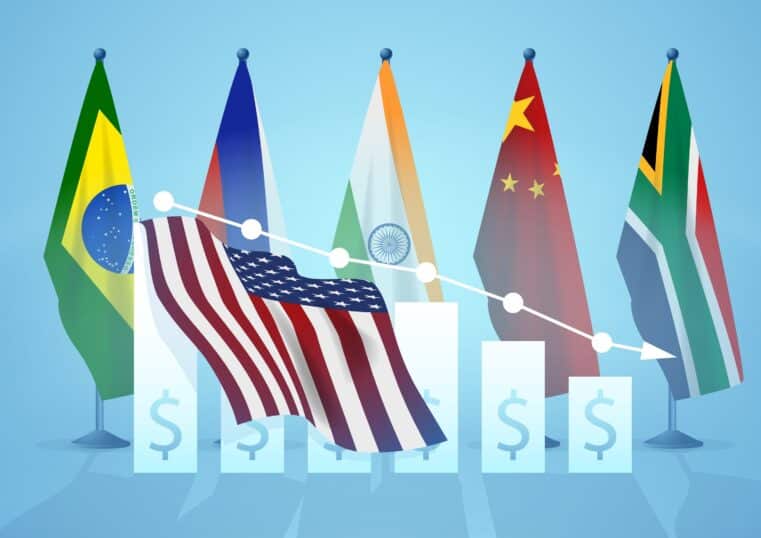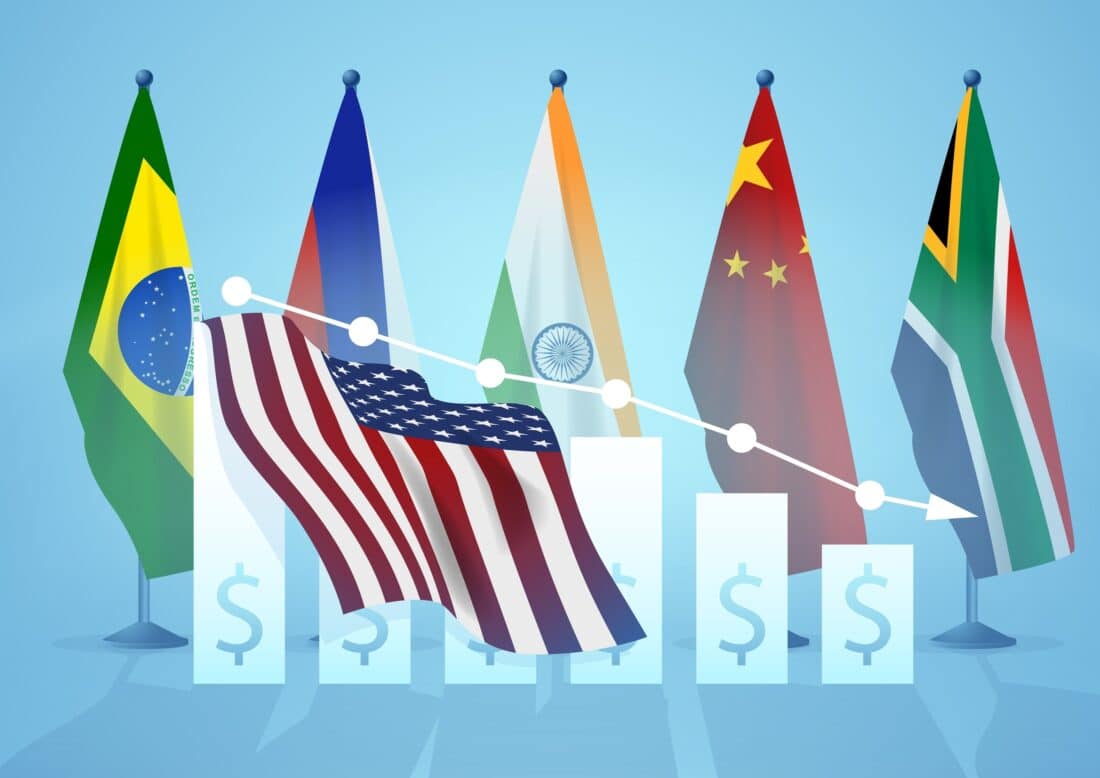
Government Control via Bitcoin Technology
Regardless of its well-intentioned origins, the policies that have evolved into the war on cash, as we now know it, has become nothing short of a government assault on privacy and freedom.
This war has escalated--opening up a new front in the digital realm. And this new front is far more dangerous...as the boundaries of the digital world are virtually infinite.
In 2008 when the global financial system was on the brink of total collapse, Bitcoin--a decentralized currency and payment system--was created as a movement against the central bank monopolies and government interventions that contributed to the crisis.
In a sheer libertarian moment, Bitcoin heralded a possible world in which the fundamental values of transactional privacy and freedom can be regained; values which history had all but erased from our memories. There was a spark of optimism in the thought of a currency existing outside of the government-regulated financial system; an asset that government could neither tax, monitor, nor control.
Governments and central banks have considered these digital alternatives a threat to their monopoly, and so many have adopted blockchain technology to usurp the source that powers them.
Bitcoin operates with “blockchain” technology. Blockchain is a decentralized digital ledger that timestamps and records transactions as they take place. Blockchain technology is practically impenetrable, ensuring that recorded transactions are inherently resistant to modification. In short, blockchain technology is what makes bitcoin transactions “reliable.” And it is this technology that governments and central banks have found to be far more valuable than the digital currency.
With blockchain technology, not only can government issue and impose their own digital currency (as in China’s experiments with the “ChinaCoin”), they can also digitize any asset existing in physical form: gold, silver, land, or any physical thing considered an asset. Taken to its furthest extreme, monetary digitization would mean total government control over all assets.
Monetary digitization brings convenience--and therein lies the bait
The most commonly-accepted argument for digitization is that a cashless society promotes convenience. Why pay with physical money when you can use an app? On a practical level, this makes sense. Using a digital payment system is far more convenient and faster than any other means of exchange.
But while convenience has an upside, it has a frighteningly asymmetrical downside.
If society accepts monetary digitization as a means to create efficiency, promote stability, or prevent financial criminality, society also grants government the permission to exercise total financial domination at the expense of its own privacy and freedom.
Government wants to know what you have, how much of it you have, and where you are holding it. They want to know at all times what you are up to. And if government ever achieves total financial control over society, here are a few horrible scenarios to expect:
● Governments will have easier access to your personal transaction records.
● Government will have the means to freeze or bar certain types of transactions in a manner that may work against free-market values.
● Governments can freeze, seize, or confiscate your assets with a few keystrokes.
● You will no longer have the individual freedom to store wealth outside of the system.
● Cashless transactions will almost always require a third-party intermediary whose workings, intentions, or identities may remain unseen and unknown.
● Negative interest rates will become a feasible option for policymakers.
● As a “saver,” you will not have the means to withstand monetary catastrophes such as extreme inflation or deflation.
● Should banks or any other institutions be “bailed-out” by government, you will be coerced into giving up part of your assets to fund the bailout--you would have no alternative course of action.
● Should you become a victim of cyber hacking--namely, identity theft--your entire life savings could be wiped out in an instant, as none of your assets would exist in physical form.
The digitization of gold and silver has already begun, compromising their safe haven status.
Case in point the fungible CUSIP list is a tracking system that the banking industry had expanded into gold and silver in 2016. Veiled as a means to add “efficiency” to precious metals markets and fungibility to their products, it is essentially an attempt to digitize, monitor, and control precious metals; assets that once were private and external to the financial system.
In Dubai, a new gold-backed digital currency is about to be launched. OneGram, an Islamic financial services and tech company, is partnering with the Dubai-based gold trading platform GoldGuard to create redeemable digital tokens, each backed by one gram of gold. The significance of this particular currency is that it is compliant with Shariah Law, making it an attractive means of exchange for up to 1.8 billion Muslims worldwide.
In the UK, Britain’s Royal Mint is partnering with the CME Group, the US-based derivatives exchange, to launch Royal Mint Gold, or RMG’s later this year. Similar to Dubai’s new cryptocurrency, each RMG will be equivalent to one gram of gold.
The Bank of Russia, in conjunction with the EU, is currently testing blockchain technology for use across a wide range of financial transactions, most notably the development of a national virtual currency. As the bank’s Deputy Governor, Olga Skorobogatova, mentioned during the St. Petersburg International Economic Forum (SPIEF), “We will get to the virtual national currency. We have already started working on this.” Noting that Russia’s monetary regulators agreed on the creation of a virtual currency, she affirmed their belief that “This is the future.”
The global movement toward digitizing gold and creating gold-backed currencies implies that there will be an overwhelming demand for physical gold!
In the coming years, other nations will be competing in this new realm. The opportunity here is plain to see: these new currencies will mean little without the physical gold to back it. Think about Dubai’s gold-backed tokens. If anything near 1.8 billion Muslims worldwide participated in this Sharia-compliant currency, how much gold must be purchased to make it work? The same goes for Britain’s RMG’s.
Here’s how to play “the future” as it unfolds.
We already know the dangers of digitization--I gave you a whole laundry list of dismal scenarios above. If you still want to buy digitized gold (or silver), or gold-backed digital cryptocurrencies...well, it’s your money, and it’s your right to take that risk.
But we’ll tell you right now that it isn’t the most prudent choice. People buy gold and silver to get out of the government-controlled financial system, not to stay in it. Your solution is simple: buy the real thing.











